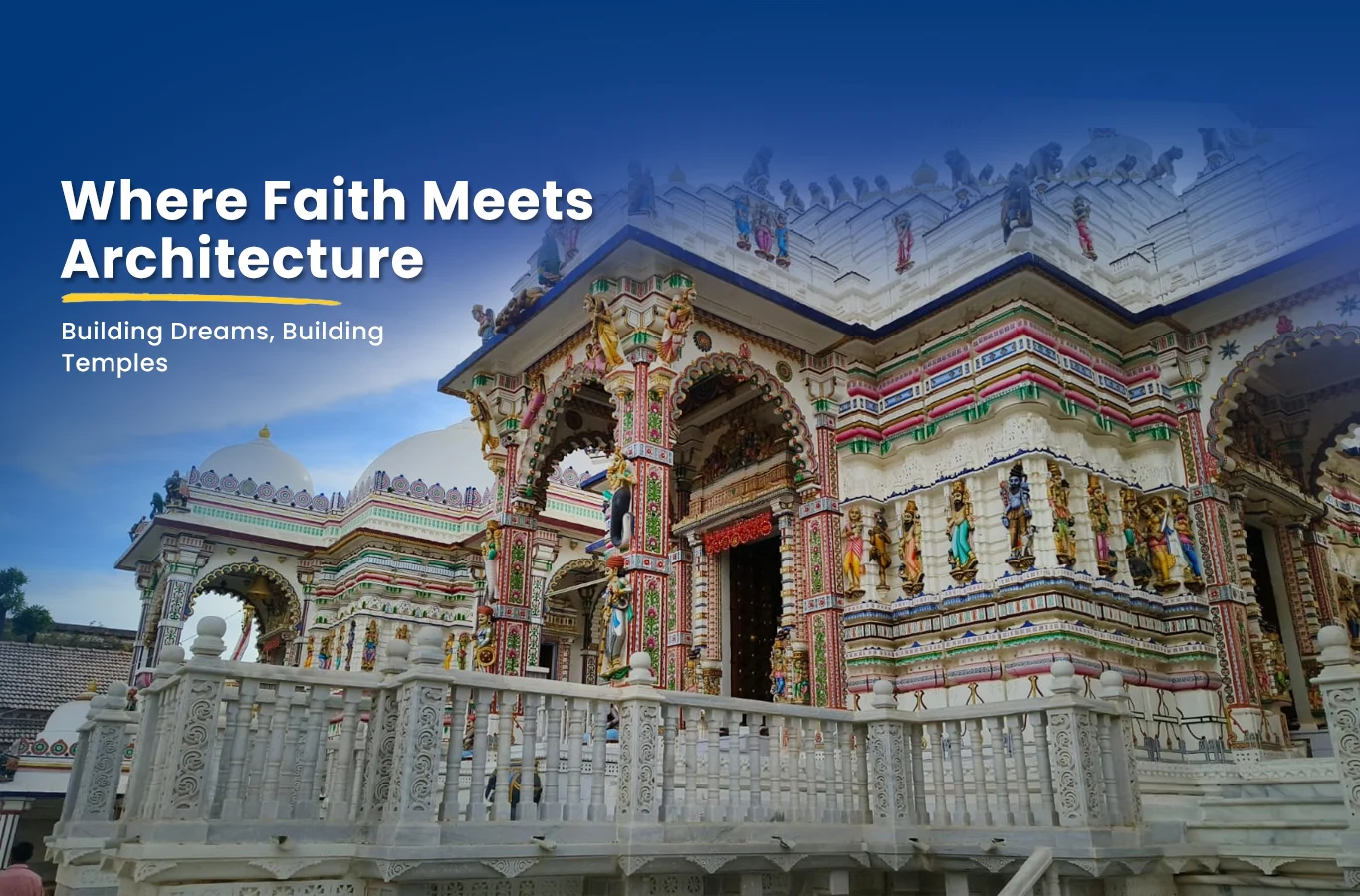Constructing a Hindu temple, or Hindu Mandir, has always been a unique blend of architecture, devotion, and tradition. However, in modern times, this sacred endeavor faces numerous challenges. From integrating traditional methods with contemporary technologies to managing environmental and legal considerations, modern-day temple construction demands meticulous planning and expertise. Whether you are working with a Temple Construction Contractor in India, a Temple Contractor in Maharashtra, or a skilled Hindu Mandir Sompura, understanding these challenges is crucial for successful execution.
The Complexities of Modern-Day Temple Construction
The construction of Hindu Mandirs involves more than building a structure; it’s about creating a divine space that resonates with spiritual energy. However, modern-day constraints such as urbanization, resource limitations, and evolving regulations present challenges that require innovative solutions.
Key Challenges in Modern-Day Temple Construction
1. Balancing Tradition with Modern Technology
Hindu Mandir construction is deeply rooted in traditional practices outlined in texts like the Shilpa Shastra.
- Challenge: Integrating these ancient guidelines with modern construction techniques without compromising authenticity.
- Example: While traditional tools are used for intricate carvings, modern machinery may be required for structural work.
Experienced Temple Construction Contractors in India strive to maintain this delicate balance.
2. Rising Costs of Materials and Labor
The cost of high-quality materials like marble, granite, and sandstone, along with skilled labor, has increased significantly.
- Challenge: Procuring authentic materials without exceeding the project’s budget.
- Solution: A skilled Temple Contractor in Maharashtra sources materials locally and negotiates effectively to manage costs.
- Impact: Limited budgets may result in compromises on the scale or intricacy of temple designs.
3. Scarcity of Skilled Artisans and Sculptors
The art of temple carving, idol making, and architectural ornamentation requires specialized skills passed down through generations.
- Challenge: The number of traditional artisans, such as Hindu Mandir Sompura, is dwindling due to urbanization and changing career preferences.
- Solution: Contractors collaborate with artisan families and offer incentives to sustain this heritage craft.
4. Urban Constraints and Limited Space
Modern cities often lack the expansive plots required for traditional temple layouts.
- Challenge: Designing temples in smaller or irregularly shaped plots while adhering to Vastu Shastra principles.
- Solution: Innovative designs by Temple Construction Contractors in India ensure that even compact temples retain their spiritual essence.
- Impact: Space constraints may affect the size of circumambulation pathways and temple courtyards.
5. Environmental and Sustainability Concerns
Temple construction often involves quarrying natural materials, which can impact the environment.
- Challenge: Ensuring the project adheres to environmental regulations and minimizes ecological impact.
- Solution: Using eco-friendly materials, such as recycled wood and locally sourced stone.
- Impact: Contractors must balance sustainability with the need for traditional materials.
Navigating Legal and Regulatory Hurdles
6. Land Acquisition and Zoning Laws
Acquiring land for temple construction involves legal processes that can delay the project.
- Challenge: Compliance with zoning laws, heritage preservation guidelines, and local government regulations.
- Solution: A knowledgeable Temple Contractor in Maharashtra ensures all necessary permissions are obtained before construction begins.
7. Preservation of Cultural Heritage
In some cases, temple projects involve renovating or expanding existing heritage structures.
- Challenge: Ensuring structural modifications do not violate heritage laws or compromise the original design.
- Solution: Collaboration with historians and conservation experts.
Meeting Community and Devotee Expectations
8. Managing Diverse Stakeholder Interests
Temple construction often involves input from religious leaders, community members, and donors.
- Challenge: Aligning diverse opinions while adhering to project timelines and budgets.
- Solution: Transparent communication and collaborative decision-making led by experienced Temple Construction Contractors in India.
9. Delays Due to Ritual Requirements
Temple construction is intertwined with spiritual rituals such as Bhoomi Puja (groundbreaking ceremony) and Pran Pratishtha (idol consecration).
- Challenge: Adhering to auspicious dates for rituals can delay construction.
- Solution: Flexible project planning to accommodate religious ceremonies.
Adapting to Modern Architectural Needs
10. Incorporating Modern Facilities
Many modern temples serve not only as places of worship but also as community centers.
- Challenge: Incorporating facilities like auditoriums, parking spaces, and wheelchair access without deviating from traditional designs.
- Solution: Skilled contractors blend modern amenities with traditional aesthetics seamlessly.
11. Structural Integrity and Longevity
Modern temples must be designed to withstand environmental challenges such as earthquakes and extreme weather.
- Challenge: Strengthening foundations and using weather-resistant materials without compromising traditional design elements.
- Solution: Use of advanced engineering techniques alongside traditional construction practices.
How Contractors Address These Challenges
12. Expertise of Temple Construction Contractors in India
- They ensure adherence to Vastu Shastra and Shilpa Shastra principles while incorporating modern technology.
- Their network of skilled artisans, like Hindu Mandir Sompuras, ensures authentic craftsmanship.
13. Local Knowledge of Temple Contractors in Maharashtra
- Familiarity with regional architectural styles and availability of local materials helps streamline construction.
- Knowledge of local regulations ensures smooth legal processes.
Conclusion
Modern-day temple construction is a complex process that involves overcoming numerous challenges while staying true to tradition and spirituality. Collaborating with an experienced Temple Construction Contractor in India, a skilled Temple Contractor in Maharashtra, or a traditional Hindu Mandir Sompura ensures that these challenges are met with expertise and devotion.
By addressing urban constraints, balancing costs, and integrating modern needs with traditional values, temple projects continue to serve as timeless symbols of faith and cultural heritage. With the right planning and collaboration, Hindu Mandirs can thrive as sanctuaries of spirituality and community, even in the face of modern challenges.

